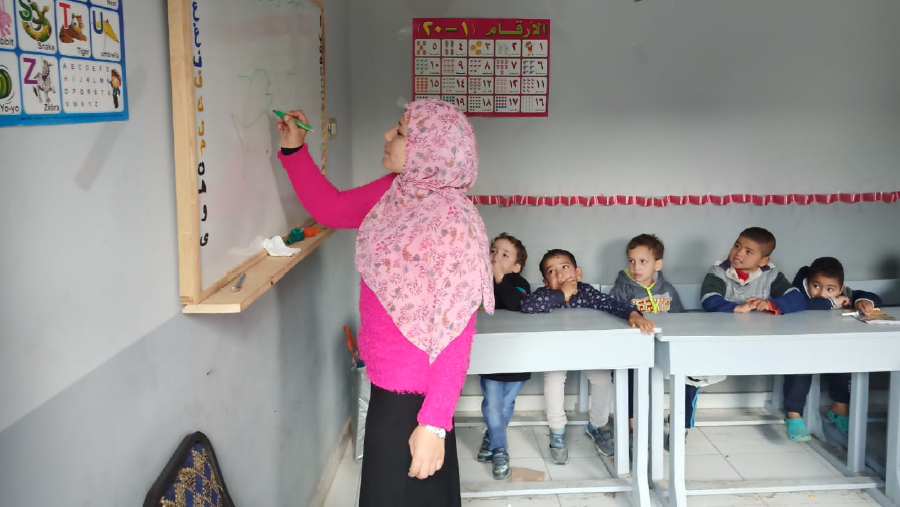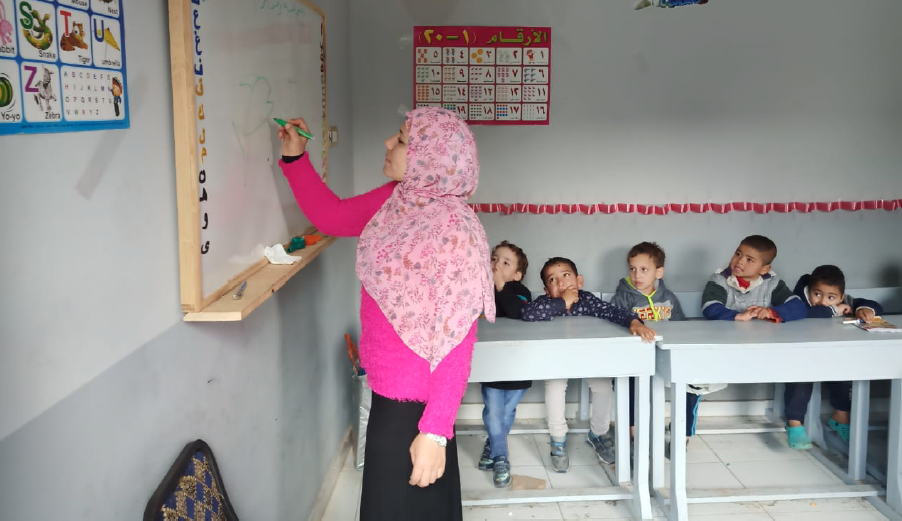
With a long-standing relationship with the Workforce Nutrition Alliance (WNA), it was no surprise when Tamer Aly, Head of Human Resources at ofi Egypt, became the 1000th follower of the Workforce Nutrition Alliance’s LinkedIn page last year, joining hundreds of other professionals in a community with the goal of getting inspired and learning about best practices for organisational workforce nutrition focussed programmes.
Here, Tamer shares his organisation’s journey with workforce nutrition.
Starting small
According to Tamer, ofi Egypt started its Workforce Nutrition (WFN) programme1 in 2019 already, developing initiatives around the main four pillars: breastfeeding support, healthy food at work, nutrition education and nutrition-focused health check-ups.
With the intent to provide a secure environment for children while the mothers work, in addition to supporting continued breastfeeding, they began by establishing a nursery at one of the onion peeling stations in upper Egypt, where the majority of the workers are women and many of them are mothers. “Besides the classrooms, the nursery has a private space for mothers to breastfeed,” explains Tamer. Their goal is to extend this project to additional locations, further supporting working mothers and their families.
Expansion to other sites
In 2022, they expanded the WFN programme across two additional worksites, reaching nearly 480 employees, comprising both temporary and permanent staff. This time they also included the three other pillars of workforce nutrition, namely healthy food at work, nutrition education and health checks.

Nutrition education
According to Tamer, the nutrition education programme aims to sensitise the workforce to the importance of nutrition for their well-being. “We did surveys to understand the employees’ level of nutrition awareness,” says Tamer.
The programme now includes in-person and virtual training sessions to teach employees about good eating habits, the nutritional benefits of local foods, meal plan development and more. Weekly emails with nutrition tips, informational posters throughout the workplace, and newsletters are also among the activities now incorporated.
Healthy food at work
Tamer says they further wanted to improve the canteen offerings by introducing healthier food options, but without putting pressure on employees. So, they decided to make fruits and vegetables available as complimentary snacks, a move that was met with overwhelming positivity from the workers. “The acceptance was really good. They were happy with the initiative because it made healthy options accessible, especially in industrial zones far from supermarkets,” says Tamer.
He says the aim of these free healthy snacks for workers is to improve overall health, curb cravings, assist with weight management, regulate their mood, and give them the energy to keep them going throughout the day.
Nutrition-related health checks
In addition to their other initiatives, the company acknowledged the importance of health checks to provide employees with essential health data that allows for early detection of nutrition-related health issues. “Health checks provide personalised data for each employee, giving them a better understanding of their nutritional risk factors, so we equipped the worksite clinics with the necessary devices to provide nutrition-related health checks all year for all employees” explains Tamer.
Moving forward
The implementation of the WFN programme reflects a growing trend in the agricultural industry, recognizing the importance of workforce nutrition as fundamental to creating a sustainable and productive work environment. As the initiative gains traction, it sets a precedent for other companies to follow, showcasing the tangible benefits of investing in employee health.
____
References
[1] The Workforce Nutrition Masterclass is a collaborative initiative of the Global Alliance for Improved Nutrition (GAIN) and The Consumer Goods Forum (CGF). It is designed to support organisations with the planning, development and implementation of workforce nutrition programmes. The curriculum covers Breastfeeding at Work, Healthy food at Work, Nutrition Education and Nutrition-focused Health Checks, in addition to guiding participants in the practical application of such initiatives. During the Masterclass, participants receive various tools and resources to enhance the live virtual training sessions, delivered over 12 weeks. Enquire or book your spot today.
